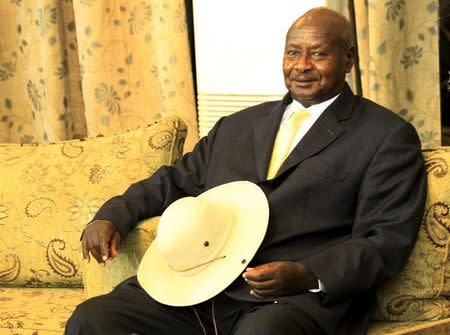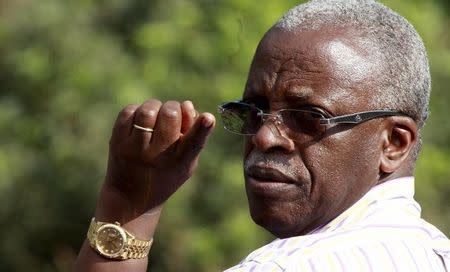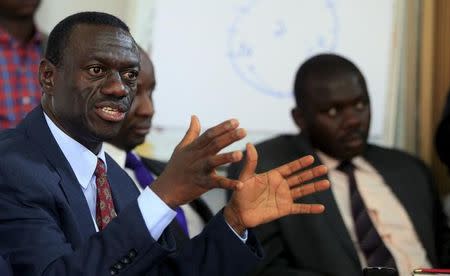Uganda's Museveni to face challengers in first presidential debate
By Elias Biryabarema KAMPALA (Reuters) - Uganda's long-serving leader Yoweri Museveni will face off against seven challengers in the country's first presidential debate before February elections, an organizer said on Friday. All candidates have agreed to take part in the U.S.-style televised session on Jan. 15 in the capital Kampala, said the Inter Religious Council of Uganda, which is putting on the event. "We thought that there are many Ugandans out there who may not have an opportunity to follow the campaigns," said Joshua Kitakure, the Council's secretary general. "From the debates the public should be able to judge which manifesto represents the future." Museveni, in power since 1986, has touted his role in leading Uganda to strong economic growth and a measure of political stability after years of turmoil. His critics have accused him of using strong-arm tactics to retain power and quell growing frustrations over corruption and perceptions the 71-year-old wants to remain president for life. In what is shaping up to be one of the toughest re-election fights Museveni has faced in years, his two major challengers are his ally-turned-rival Amama Mbabazi, a former prime minister, and Kizza Besigye, a long-time opposition figure and Museveni's former personal doctor. Both candidates have attracted huge crowds at rallies in recent weeks. Opposition leaders had initially planned to challenge Museveni as a coalition, but were unable to unite behind a single candidate. But political observers say Mbabazi and Besigye could each win enough support to keep Museveni from reaching the 50 percent threshold in the Feb. 18 vote, forcing a run-off. A Museveni spokesman could not immediately be reached about the debate announcement. On Thursday, on the eve of Pope Francis' arrival in Kampala for a weekend-long visit, Uganda's parliament passed a bill requiring all civil society groups to be re-registered. The government has voiced concerns that non-governmental groups have been working without valid registration. Rights groups have dismissed this, calling the bill an effort to stifle critical voices ahead of the elections. The bill's "broad and vague language leaves NGOs vulnerable and will prompt fear and self censorship as NGOs guess at how to comply," Maria Burnett, a researcher at the New York-based Human Rights Watch said in a statement. (Editing by Edith Honan)




